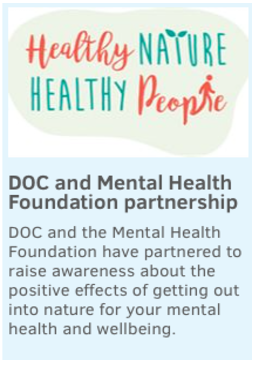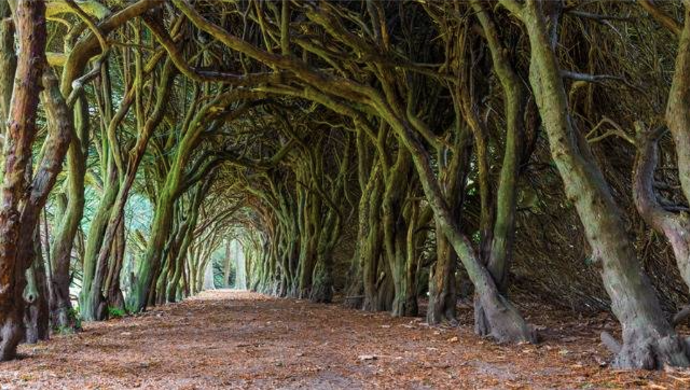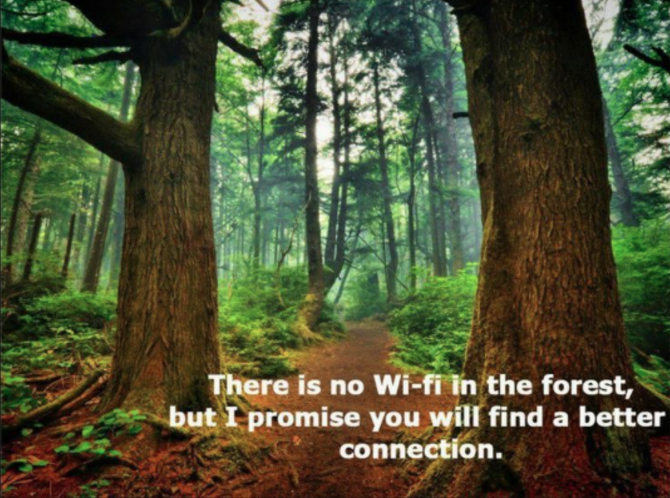Alison Carrington,
Graduate Practitioner, Paua Clinic
We know intuitively that spending time in nature makes us feel good, don’t we? It is in our DNA, we have a natural attraction to it, an affinity for it, perhaps summed up best in the term “biophilia” which refers to our innately emotional affiliation to other living organisms. Humans have lived in nature for 5 million years, it is part of who we are, but now research is showing how important nature is for our survival. Studies are proving that nature can boost your mental and physical well-being, having a direct positive impact on our health.
Research into ‘nature therapy’ shows that it helps control pain and stress, and for people with heart disease, dementia and other health issues, nature is showing it also has restorative powers. For example, researchers at a Pennsylvania hospital, found that where some patients’ rooms faced a brick wall and others faced a line of deciduous trees, the patients with the views of nature had shorter hospital stays, required less pain relief and were much more positive in their outlook.
In a literature review by Deakin University in Melbourne, it has been shown that the following health benefits come from spending time in nature:
- exposure to natural environments, such as parks, enhances the ability to cope with and recover from stress, illness and injury.
- established methods of nature-based therapy (including wilderness, horticultural, and animal-assisted therapy) have success in healing patients who previously had not responded to treatment of some emotional or physical ailments.
- People have a more positive outlook on life and higher life satisfaction when in proximity to nature, particularly in urban areas.
In his book, “The Nature Principle”, Richard Louv talks about areas of natural wetland that serve as “nature’s liver” as they purify water and trap pollutants. Nature, when thought of in this context is a metaphor for our bodies: in that taking care of nature is as important as taking care of our own health, and that the heath of the planet and that of humanity are inextricably connected.
Richard says “…the rain forests and other natural places are the source of many of our medicines, so time spent in that world reduces stress. We feel good from the endorphin release it stimulates, and it inspires us. Inspiration is a giver of health.” Richard says he goes into the woods knowing that he will receive healing, and the benefits come in the form of physical, psychological and spiritual gains. That might explain why natural places in New Zealand such as the national parks, and areas of NZ native bush uplift us and feed our souls: they are sources of many of our Rongoa – Traditional Maori medicines.
In Japan, there is an accepted health concept known as “forest-bathing” or Shinrin-Yoku. The idea is very simple: if a person visits a natural area and walks in a relaxed way, there are calming, rejuvenating and restorative benefits to be achieved. Professor of Forest Medicine (yes, in Japan there is such a title!) at a medical school in Tokyo, Li Qing, has found that green exercise – or physical exercise in a natural setting – can increase the activity of natural killer cells (NK). When NK activity increases, immune strength is enhanced, boosting resistance against stress. Interestingly, he attributes the increase in NK activity partly to inhaling antimicrobial essential wood oils given off by plants, and while the reason for the increase of NK cells requires more study, it is an interesting concept. Researchers in Japan have studied a “robust body of scientific literature” on the health benefits of spending time under the canopy of a living forest and now their research is helping establish shinrin-yoku and forest therapy throughout the world. Forest-bathing can be further enhanced by spending time meditating, being mindful or journaling; anything that slows you down.
John Mui, considered one of the founders of the Shinrin-Yoku movement wrote “Thousands of tired, nerve-shaken, over-civilised people are beginning to find out that going to the mountains is going home. Wilderness is a necessity.”
You can read more about the Shinrin-Yoku philosophy here:
http://www.shinrin-yoku.org/shinrin-yoku.html

In 2000, the Victorian Government, Australia, commissioned a report looking into the health benefits of parks and natural spaces. It is a fascinating read:
http://parkweb.vic.gov.au/about-us/healthy-parks-healthy-people/the-research
The New Zealand Government was so impressed with these findings, that it adopted the concept, and DOC now runs the Healthy Nature, Healthy People programme.
http://www.doc.govt.nz/nature/healthy-nature-healthy-people/
Being in nature is as important to our health and wellbeing as diet and exercise. We all need a regular dose of light, energy and awe, and none of them come in pill form, thankfully. I hope you are getting a regular dose.
References
Friedman, L. (2016). 11 scientific reasons you should be spending more time outside. Business Insider. http://www.businessinsider.com/scientific-benefits-of-nature-outdoors-2016-4?IR=T/#1-improved-short-term-memory-1
Healthy Nature Healthy People: Nature. (2017). Doc.govt.nz. http://www.doc.govt.nz/nature/healthy-nature-healthy-people/
Louv, R. (2012). The nature principle (1st ed.). Chapel Hill, N.C.: Algonquin Books of Chapel Hill.
Maller, C., Townsend, M., St Leger, L., et al. (2016). Parks Victoria – What the research says. Parkweb.vic.gov.au. http://parkweb.vic.gov.au/about-us/healthy-parks-healthy-people/the-research
Shinrin-Yoku Forest Medicine. Shinrin-yoku: the Medicine of Being in the Forest. http://www.shinrin-yoku.org/shinrin-yoku.html
“A gentle path to wellness accessible to almost everyone…” (Shinrin-Yoku.org)





